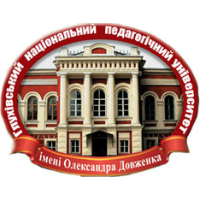 English
English Русский
Русский Українська
Українська
Languages
ZAREMSKYI M. Y. Essay on the history of Polish philosophy, made by M. Masonius: modern reading
The paper «Essay on the history of Polish philosophy, made by M. Masonius: modern reading» is the historiosophical research, because its problems make the scientific integrity and bear the necessary historiographical material, as well as definitions, terms and references, which are unusual for the domestic(Ukrainian) philosophical thought. They make evident the personal contribution of Polish philosophers to the treasury of the European spiritual culture. The text of the essay “Philosophy of Poles” shows the comprehensive coverage of philosophical problems, embodied in the deep fundamental and original works of Polish thinkers which represented the intellectual life in Poland. This essay was written by Marian Masonius.
It is emphasized that M. Masonius considered the reasons of a certain passivity in the intellectual and scientific life of the Polish people at the beginning of the philosophical rational-ordered thinking forming. They are the absence of the skills of a thorough, pedantic, complete habit of self determined philosophical research and correct scientific work. In combination with the political circumstances (first of all, the loss of the country's political sovereignty) they gave the Polish philosophy a certain tendentiousness.
M. Masonius divided the history of Polish philosophy into six periods: 1) Krakow‟s University (since its foundation in 1364 by King Kazimir the Great initially as a law school, the university faculty and during the reign of Vladislav Jaghelly (from 1400) as the full functional university, because of the opening of three more faculties). In the second half of XV and in the XVI century it reached the highest degree of development; 2) Jesuit (from the end of the XVI-th to the middle of the XVI-th century); 3) imbued with sensualism, which begins with the school reform launching and the replacement of Jesuit schools by the piars; 4) Kantian; 5) Hegelian; 6) positivistic.
The emphasis placed by Marian Masonius on the peculiarities of the philosophical process in Poland after the bloody events of 1831 and the closing of Vilna and Warsaw Universities were very powerful: the best mental and moral forces of the Polish people had to emigrate; the reasons for the loss of political independence and the means for gaining the liberty; the historical role of Poland and the place that the Polish people would have to occupy among other European nations. He emphasizes that all these problems became the center and focus of all aspirations and thoughts of the best Polish people. It must be stated that Polish philosophy has become a nutrient for messianism. It is the idea of a special historical mission of the Polish people, its calling to solve all the problems that concern humanity and to realize the reality of the idea of good, truth and justice. An important feature of Polish philosophy is its doubtless tie with romanticism, which has enthralled the sphere of literary and artistic creativity and especially poetry, forcing and asserting the sophistical method of philosophizing with its peculiar features in being a universal mean of human‟s self-determination and self-raising, to fathom his mysteries and intimate depths. It also can cover and express in its own way such existential tendencies, which have not yet found their reconstruction in the established forms of social consciousness, using literature, art, other artistic and aesthetic practices for this purpose.
«The History of Polish Philosophy (Philosophy in Poles)», written by Marian Masonius is essentially a reproduction of the historical and temporal sequence of efforts, made by well-educated and talented Polish thinkers to construct uncontroversial internal and external pictures of Polish natural and social reality. It was made in the form of the conceptions or at least their works were systematically rationalized fragments. Based on empirical-historical and theoretical-logical methods of describing the objective history of Polish philosophy, this author made a huge, very intense and objective description of its original and unique features.
Key words: Hegelianism, Marian Masonius, mesianism, Polish philosophy, romanticism, triad.
- 238 reads





